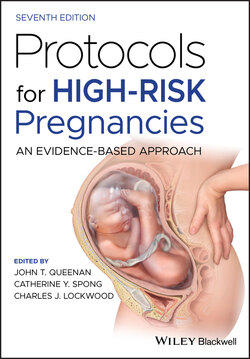Читать книгу Protocols for High-Risk Pregnancies - Группа авторов - Страница 140
Role of transfusion therapy
ОглавлениеRed blood cell transfusions are required by 50% of patients with SCD. The role of transfusion in the management of SCD during pregnancy remains controversial. Therapeutic transfusion is beneficial in patients with a severe anemia (typically <7 g/dL or a significant decrease from the patient’s baseline) or in those with acute stroke, acute chest syndrome, acute symptomatic anemia, reticulocytopenia (often associated with parvovirus B19 or other infections) or acute multiorgan failure.
The role of prophylactic transfusion and exchange transfusion is less clear in pregnancy. A 2016 Cochrane review found insufficient evidence to support prophylactic transfusions. In their review, one small, low‐quality study was identified which showed a reduction in the risk of pain crisis in patients receiving prophylactic transfusions compared to selective transfusion but failed to show benefit in reduction of maternal or perinatal mortality, or severe maternal morbidity.
In anemic women undergoing planned surgery, cesarean delivery for example, a preoperative transfusion can be considered to prevent postoperative severe anemia and potential postoperative complications.
Given the high frequency of transfusion in these patients, it is imperative to ensure appropriate cross‐matching for minor blood antigens to avoid both transfusion reactions and antibody development to antigens which may limit future availability of blood products for these patients. Overall alloimmunization development rates have ranged between 6% and 85% depending on the study. A systematic review of the available literature did not identify an ideal cross‐matching approach. It is reasonable to attempt strict cross‐matching and consider leuko‐reduced and/or cytomegalovirus (CMV)‐negative blood to limit transfusion reactions and infections in this patient population. In patients affected by SCD, early preparation and cross‐matching of appropriate blood products should be strongly considered in order to have products available in the event of peripartum hemorrhage, crisis, or other adverse outcome.
